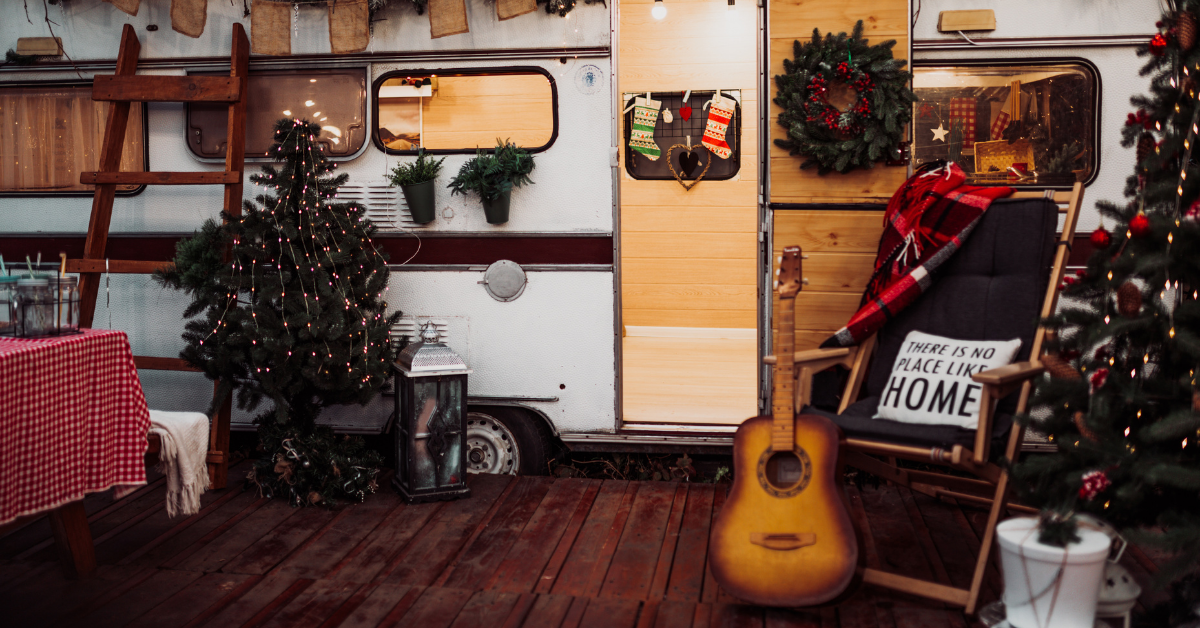California winters may be mild compared to other states, but they can still bring temperature drops, frost, and condensation, especially in mountainous and inland areas. Proper winterization ensures your RV stays in top condition, whether you’re traveling or storing it during the colder months.
This guide breaks down how to winterize an RV for California’s unique climate, so you can avoid costly repairs and stay comfortable throughout the season.
Why Winterizing Your RV Matters
Even in California’s mild climate, temperature fluctuations can cause issues like frozen pipes, condensation, and exterior damage. Proper winterization protects your RV’s systems and ensures it’s ready for travel or storage.
Essential Steps to Winterize Your RV
Proper preparation involves several key steps to ensure your RV remains functional and safe throughout the winter months. Each area, from plumbing to insulation, requires specific care to prevent damage.
1. Drain and Protect Your Plumbing System
Protecting your RV’s plumbing system is crucial to avoid damage from freezing water.
- Empty the Tanks: Drain the freshwater, gray water, and black water tanks.
- Flush the Lines: Use an air compressor or open faucets to remove residual water.
- Add Antifreeze: Pour non-toxic RV antifreeze into the plumbing system, including drains and the toilet. Follow your RV manufacturer’s guidelines for the proper amount.
2. Insulate Your RV
Keep your RV warm and energy-efficient by reinforcing insulation.
- Seal Windows and Doors: Replace worn-out seals and use thermal curtains or reflective insulation for windows.
- Install Skirting: For stationary RVs, skirting helps block cold air from entering underneath.
- Protect Pipes: Wrap exposed pipes with foam insulation to prevent freezing.
3. Maintain Your Heating System
Ensure your RV’s heating system is in working order before winter arrives.
- Inspect and Clean the Furnace: Check for dust buildup and replace filters.
- Test the Heating System: Run the system to ensure it operates correctly.
- Consider Supplemental Heating: A portable space heater can provide extra warmth for smaller areas.
4. Protect the Exterior
Shield your RV from winter weather with proper exterior maintenance.
- Clean and Wax: Wash the RV and apply a wax coating to protect against moisture.
- Inspect the Roof: Check for cracks or leaks and seal them with RV roof sealant.
- Use an RV Cover: A breathable cover protects against frost, rain, and debris while preventing moisture buildup.
5. Address Electrical Systems and Batteries
Cold weather can affect your RV’s electrical systems and battery life.
- Charge and Store Batteries: Fully charge your RV batteries and disconnect them if the RV is in storage.
- Inspect Electrical Connections: Look for corrosion or loose wires and clean terminals as needed.
California-Specific Winterizing Tips
California’s varied climate means you may need to adjust your winterization process depending on where you’re located. Here are some additional considerations for the state’s unique conditions.
- Adjust for Regional Conditions: If you’re in mountainous areas like Big Bear, focus on extra insulation and antifreeze. Coastal areas like San Diego may only require plumbing protection and basic exterior care.
- Manage Condensation: Use moisture absorbers or a small dehumidifier to prevent condensation in humid regions.
- Prevent Rodent Damage: Seal small openings with steel wool or foam and place rodent deterrents in storage areas.
FAQs About Winterizing an RV
Do I Need to Winterize My RV in California?
Yes. While California winters are mild, regions like the Sierra Nevada or high deserts can experience freezing temperatures, making winterization essential.
What Antifreeze Should I Use?
Use non-toxic RV antifreeze designed for plumbing systems. Never use automotive antifreeze in your RV.
Can I Use My RV After Winterizing?
Yes. If you’re traveling during winter, you can adjust the level of winterization by reconnecting water systems while maintaining insulated pipes and sealed windows.
Conclusion
Winterizing your RV for California’s diverse climates ensures it stays protected from temperature changes, frost, and condensation. Whether you’re planning to store your RV or embark on a winter road trip, these steps will keep it in top condition.
Looking for a place to stay during your winter travels? Smoke Tree RV Park offers full hookups, gated security, and amenities to make your stay comfortable. Contact us today to reserve your spot!




